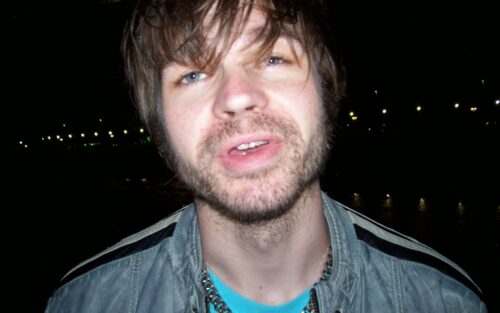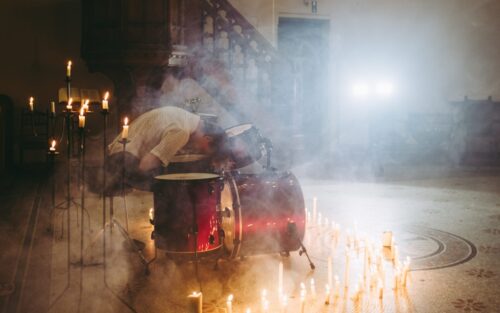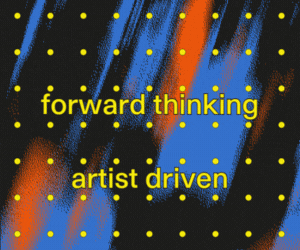Anjimile: Long Live The King
The dignified indie folk experimentalist explores sonic textures through creative limitations.
By Gregory Adams
Photos by Shervin Lainez
- Published on
“I have a challenging relationship with my parents, especially my mother, because of my gender identity and sexuality,” Chithambo explains of the origins of “Anybody”. “That song was written in the wake of a transphobic rant that my mom went on maybe two years ago. It sucked, and it changed my relationship with my mother; it’s the reason that we’re estranged…. You know when you go through a life situation and you’re like, ‘I’m going to need a lot of therapy for this?’ It was one of those. I was just devastated.
“It might be surprising to learn, but I have a hard time processing my feelings,” Chithambo continues. “I apparently have an easy time singing about them, but when it comes to being vulnerable with people, and really sharing where I’m at, I have a hard time with that. I was holding a lot in for the next couple months.”
That familial strife may have sent Chithambo into a period of sleepless nights and feeling “like trash,” but he ultimately pushed through to write “Anybody” as “a helpful step in the grieving process.” His mother hasn’t heard the song yet; Chithambo is “cycling between anger and acceptance” at the reality of their current situation.


The King, meanwhile, stands as a major artistic breakthrough for Anjimile. Like Giver Taker, it was crafted with Chithambo’s trusted acoustic guitar. It often doesn’t sound like it, though. The King’s opening title track, for instance, begins with angelic choral harmonies and a bit of biblical allegory, but goes out with a dizzying series of seemingly synth-based arpeggios the artist admits bear influence from Philip Glass’ experimental Koyaanisqatsi score, and arguably the minor key, darkwave opulence of Violator-period Depeche Mode. Despite writing the song, Chithambo couldn’t believe his ears when he heard the first studio mix, evidenced by an Instagram video of him seated-but-headbanging, and generally freaking out during the tune’s overwhelming crescendo.
“I had never made anything like it, or heard anything like it,” he recalls vividly, adding of the incredulity he felt in the moment, “I was like, ‘What kind of devil bullshit is this, man?’”
That “devil bullshit,” it turns out, is the sonic alchemy Chithambo concocted alongside Grammy-and-Juno-winning producer Shawn Everett (Adele, Weezer). The North Carolina-based Anjimile explains that when he first traveled to Los Angeles to meet Everett, the producer wasn’t too swift to open his front door. It was a little weird, but when they finally got face-to-face, Everett thankfully passed the vibe-check. “He comes out of his studio, he’s holding a piece of toast, and he was like ‘Sorry, I had to keep you waiting, I was buttering my toast.’ I started giggling, then he started giggling, and I then I was like, ‘he’s the one!’”

“I was like, ‘What kind of devil bullshit is this, man?’”
The pair bonded while discussing paintings they saw at museums, or while watching films like Solaris and The Wizard of Oz in the studio. When it came to Anjimile’s art, Everett suggested the idea of imposing “creative limitations” on The King by primarily sourcing sounds out of an acoustic guitar, and then mutating them into bold, near-unrecognizable textures. This includes natural harmonics being pitched-up to sound like a toy piano (“Genesis”) or by having Big Thief’s James Krivchenia slap out beats on the back of the guitar (“Black Hole”). The experiments are wildly successful, though on pieces like “I Pray,” “to contrast the mania of other, more aggressive tracks,” the power remained in the traditional thrum of a six-string.
Chithambo felt inspired to take his vocals in dynamic directions, too — take “Anybody,” an absolute clinic where he pirouettes from precious falsetto fluttering towards a ground-rumbling baritone. Elsewhere, he revisits the themes of Giver Taker through new recovery ballad “Father.” Inspired by the protest music of Kendrick Lamar and Fela Kuti, he responds to the police murder of George Floyd and white liberal both-sidesism through the deeply detuned “Animal.” While presented in otherworldly sonic fashion, the themes of The King are grounded in a profound realism.
While still rooted in Anjimile’s folky past, The King is a trickier collection to pin down — its amorphous, and ever-expanding palette is also a major part of its appeal. What’s sure is that Anjimile wants to keep breaking down musical boundaries.
“I had always fashioned myself as an indie-folk artist. With The King…it’s kind of that, I guess…but it’s also something else. It made me realize how inane genre labels are…[or] how fully irrelevant to my creative process they are. No shade to genre, but in terms of writing and making [music], it has absolutely nothing to do with what I’m doing.”
At the moment, Anjimile is reveling in the sonic liberation of The King. Chithambo’s drive from this point forward, he explains, is to “make compelling soundscapes”. When pressed on what that could mean, exactly, he posits he could write a song comprising nothing but feedback, or perhaps a piece that pairs an accordion loop aired with a spoken word piece; maybe future songs will be constructed through similarly Glass-like, avant frameworks as “The King.” Whatever the direction, it’s a wide-open road from here.
Anjimile sums up what’s next best: “I feel free to get weird now, in a way I didn’t before.”
By Stephan Boissonneault
Nate Amos revisits a decade of stray ideas and turns them into his most compelling record yet.
By Khagan Aslanov
Mike Wallace’s electro-punk project premieres the hypnotic, percussion-driven video for "Certain Days."











